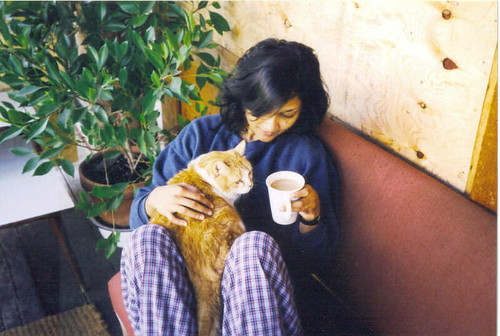Thief of Time

Thief of Time
by Terry Pratchett
While not one of Pratchett's keel-over-laughing funny yarns, Thief of Time allows for plenty of guffaws and chuckles along the way as we get to know more about the History Monks and the dreaded Auditors, as well as the enigmatic Susan Sto Helit, grand-daughter of Death himself.
Of course, in the Discworld, very-real-yet-intangible-constructs are personified. So after we have accepted matter-of-factly that Death is a person (roughly speaking), we get to meet the Four (Five, actually) Horsemen of the Apocalypse, who are also persons so-to-speak, along with Ronnie Soak, the innocuous milkman whose façade barely contains the roiling innards that fester with what-I-could-have-been.
Time, in the Discworld, is just like any other resource that can be allocated and managed as needed. History Monks have taken it upon themselves to do this job, and do it well. After all "How much time does a codfish really need?" when busy intellectuals are wringing their hands wondering "Oh where does the time go?"
The subplots are intricately woven to meet and mingle and make sense in the end: there are the Auditors who decide to become persons (i.e., humans, with all the human failings), there is the reluctant Susan Sto Helit who gets dragged into the fray, there are the retired Four Horsemen of the Apocalypse who don't want to be bothered when Death comes knocking on their doors, there is Lu-Tze who shall remain a conundrum, there is young Lobsang with strange talents, there is Igor mail-ordered from Igors-R-Us, and not the least of all is Jeremy, commissioned to build the Perfect Glass Clock which, ironically, would stop Time as we know it, if built successfully.
But that is not all in this fantastic story that Pratchett weaves: Time is a person. And Time begets a son. Well, two sons. No, strike that. One son who manifests himself in two very distinct forms with two very different abilities to manipulate time. And we learn that the relationship between Time and History is rather unique: History cannot happen if there is no fabric of Time for it to happen on.
Well, it is not easy to do justice to this multi-layered thrill-ride where nothing is exempt from mockery: from the classic martial arts movies to the modern system of education which relies more on feel-good-ness than learning, plus the power of chocolate as ammunition, and pure human frailty, skinned and exposed for us to ponder on.
As always, all's well that ends well. Things get sorted out and everybody goes back to doing what they end up doing according to history anyway.
Labels: book review, Terry Pratchett


2 Comments:
Oh, you make me want to read this! I've never read Pratchett.
HI Dale! If ever you decide to try Pratchett (my vote would be for Mort - one of his earlier works), please do let me know if it went well with you.
Post a Comment
<< Home